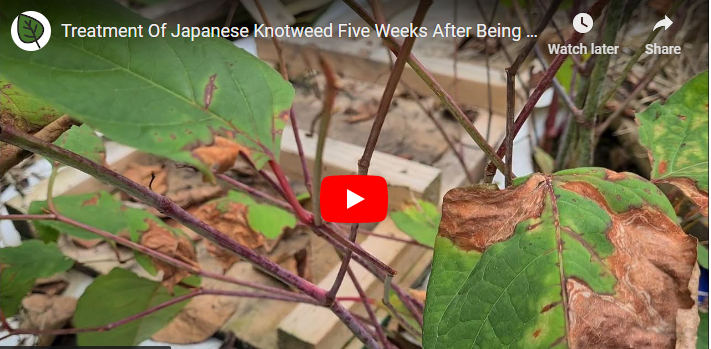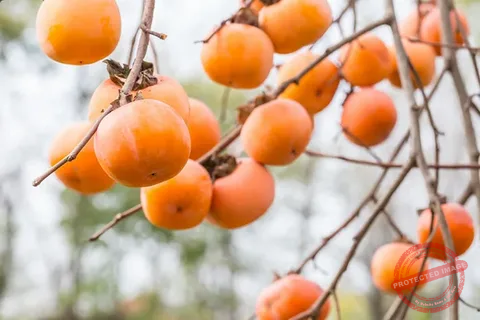Introduction: Cultivating a Thriving Sweet Potato Garden
Growing sweet potatoes can be a rewarding experience, especially when you witness the vibrant foliage and savor the sweet, nutritious tubers. To ensure a bountiful harvest, it’s crucial to provide your sweet potato plants with the right nutrients.
In this comprehensive guide, we will explore the 15 best fertilizer options for sweet potatoes, encompassing both organic and inorganic choices. Whether you prefer to embrace organic gardening practices or seek the convenience of synthetic fertilizers, this article has got you covered.
15 Best Fertilizers for Sweet Potatoes Organic & Inorganic
A diverse range of fertilizer options exists in the market, making it challenging to choose the most suitable one for your sweet potatoes. To simplify your decision-making process, we have curated a list of the 15 best fertilizers for sweet potatoes, categorized into organic and inorganic choices. Let’s dive into the details!
Read Also: 15 Best Fertilizers for Onions Farm [Organic & Inorganic]
Organic Fertilizers for Sweet Potatoes
Organic fertilizers offer an environmentally friendly and sustainable approach to nourishing your sweet potato plants. They harness the power of natural ingredients to deliver essential nutrients while improving soil structure and fostering beneficial microbial activity. Here are the top organic fertilizers for sweet potatoes:
1. Compost:
Harness the nutrient-rich power of decomposed organic matter to provide a well-balanced blend of macro and micronutrients. Compost enhances soil fertility and promotes healthy root development, leading to robust sweet potato plants.
Read Also: 15 Best Fertilizer for Cocoa Farm [Organic & Inorganic]
2. Manure:
A time-tested organic fertilizer, manure enriches the soil with nutrients and enhances moisture retention. Choose well-aged manure to avoid burning plant roots and achieve optimal results.
Read Also: 15 Best Fertilizers for Okra Farms [Organic & Inorganic]
3. Fish Emulsion:
Derived from fish waste, fish emulsion delivers a concentrated source of nitrogen and trace minerals. It acts as a fast-acting fertilizer, promoting vigorous growth and improving overall plant health.
Read Also: 15 Best Fertilizer for Cabbage Organic & Inorganic
4. Seaweed Extract:
Packed with micronutrients, seaweed extract stimulates root growth and enhances sweet potato plant resilience. It also aids in nutrient absorption, providing a natural boost to your garden.
5. Bone Meal:
Rich in phosphorus, bone meal contributes to robust root development and improved tuber formation. It is an excellent choice for sweet potatoes, which require phosphorus for healthy growth.
Read Also: 15 Best Fertilizers for Carrot Organic & Inorganic: Boost Your Carrot Growth!
Inorganic Fertilizers for Sweet Potatoes
Inorganic fertilizers, also known as synthetic or chemical fertilizers, offer a convenient and precise way to provide essential nutrients to your sweet potato plants. They often come in granular or water-soluble form, allowing for targeted application. Here are the top inorganic fertilizers for sweet potatoes:
Read Also: Fertilizer Schedule for Apple Trees: Optimal Nutrition for Bountiful Harvests
6. 10-10-10 NPK Fertilizer:
This balanced blend of nitrogen (N), phosphorus (P), and potassium (K) provides a steady supply of essential nutrients for sweet potato plants. It is suitable for both soil incorporation and as a top dressing during the growing season.
Read Also: 15 Best Fertilizers for Maize: Organic & Inorganic
7. Ammonium Nitrate:
An excellent nitrogen source, ammonium nitrate promotes vigorous foliage growth and enhances the development of sweet potato vines. It is highly soluble and quickly absorbed by the plants.
8. Potassium Sulfate:
Sweet potatoes have a high potassium requirement for tuber formation. Potassium sulfate provides a concentrated source of potassium, promoting robust root growth and improving the quality of the harvested sweet potatoes.
Read Also: Top 10 Best Herbicides for Lawns
9. Calcium Nitrate:
Calcium is essential for preventing common sweet potato disorders, such as internal cork and blackheart. Calcium nitrate supplies readily available calcium, ensuring healthy tuber development and minimizing storage-related issues.
10. Superphosphate:
Sweet potatoes benefit from phosphorus during their early growth stages. Superphosphate, with its high phosphorus content, aids in root establishment and enhances overall plant vigor.
Read Also: Top 15 Best Herbicides for St Augustine Grass
11. Slow-Release Fertilizers:
These specialized fertilizers gradually release nutrients over an extended period, providing a steady supply to sweet potato plants. Look for slow-release fertilizers with a balanced nutrient ratio, such as 14-14-14 or 16-16-16.
Read Also: Fertilizer Schedule for Sugarcane: Maximizing Yield with Proper Nutrient Management
The Importance of Fertilizing Sweet Potatoes
Sweet potatoes are voracious feeders and require an ample supply of nutrients to thrive. Fertilizing plays a pivotal role in providing these vital elements, promoting healthy growth, and enhancing tuber development. By selecting the appropriate fertilizers, you can optimize your sweet potato plants’ overall health and ensure an abundant yield.
Read Also: Top Best Herbicides For Sugarcane
Finding the Right Fertilizer for Your Sweet Potatoes
When selecting a fertilizer for your sweet potatoes, several factors come into play. Consider the following aspects to find the best match for your gardening needs:
Nutrient Composition:
Pay attention to the nutrient ratios (N-P-K) and micronutrient content of the fertilizer. Sweet potatoes have specific nutrient requirements, so choose a fertilizer that meets those needs.
Read Also: Top 10 Best Herbicides for Clover
Soil Test:
Conduct a soil test to determine the existing nutrient levels in your garden. This analysis helps identify any deficiencies or imbalances, allowing you to choose a fertilizer that addresses those specific needs.
Application Method:
Consider the application method that suits your gardening preferences. Granular fertilizers are typically incorporated into the soil, while water-soluble options are applied as liquid solutions.
Read Also: Top 10 Best Herbicides for Japanese Knotweed
Release Rate:
Determine whether you prefer a quick-release or slow-release fertilizer. Quick-release options provide an immediate nutrient boost, while slow-release fertilizers offer a more gradual and sustained nutrient release.
Organic vs. Inorganic:
Assess your gardening philosophy and choose between organic and inorganic fertilizers. Organic options align with sustainable practices and promote soil health, while inorganic fertilizers offer precise nutrient control and convenience.
Now, let’s address some frequently asked questions about the best fertilizer for sweet potatoes:
Can I use homemade compost as a fertilizer for sweet potatoes?
Absolutely! Homemade compost is an excellent organic fertilizer for sweet potatoes. It enriches the soil with nutrients and improves its structure, leading to healthy plant growth.
How often should I fertilize my sweet potato plants?
Sweet potatoes benefit from regular fertilization. Apply a balanced fertilizer at planting time and side dress with additional nutrients every four to six weeks throughout the growing season.
Can I use synthetic fertilizers on organic sweet potatoes?
No, if you’re growing organic sweet potatoes, it’s crucial to use organic fertilizers to maintain organic certification. Synthetic fertilizers are not permitted in organic farming practices.
Are there any natural alternatives to chemical fertilizers for sweet potatoes?
Yes, several natural alternatives, such as compost, manure, and seaweed extract, provide the necessary nutrients for sweet potatoes without the use of synthetic chemicals.
Can I over fertilize my sweet potato plants?
Yes, over-fertilization can be detrimental to sweet potato plants. It can lead to excessive foliage growth at the expense of tuber development. Follow the recommended application rates and guidelines to avoid over-fertilizing.
Is it necessary to use both organic and inorganic fertilizers for sweet potatoes?
It is not necessary to use both types of fertilizers. You can choose either organic or inorganic fertilizers based on your gardening preferences and goals. Both options can provide the necessary nutrients for sweet potato plants.
Conclusion
Growing sweet potatoes can be a fulfilling endeavor, especially when you have the right fertilizers to support their growth. In this article, we have explored the 15 best fertilizer options for sweet potatoes, encompassing both organic and inorganic choices. Remember to consider your gardening philosophy, nutrient requirements, and application preferences when selecting a fertilizer.
Whether you opt for organic fertilizers like compost, manure, and seaweed extract, or choose the convenience of inorganic options such as 10-10-10 NPK fertilizer or slow-release blends, the key is to provide your sweet potatoes with the necessary nutrients for healthy foliage and abundant tuber production.
By harnessing the power of these fertilizers, you can unlock the secrets to a thriving sweet potato garden and enjoy a bountiful harvest of delicious, nutrient-rich tubers. Happy gardening!



![How To Buy Farmland For Investment [Farmer’s Guide]](https://agrolearner.com/wp-content/uploads/2024/01/Farmland.jpg)